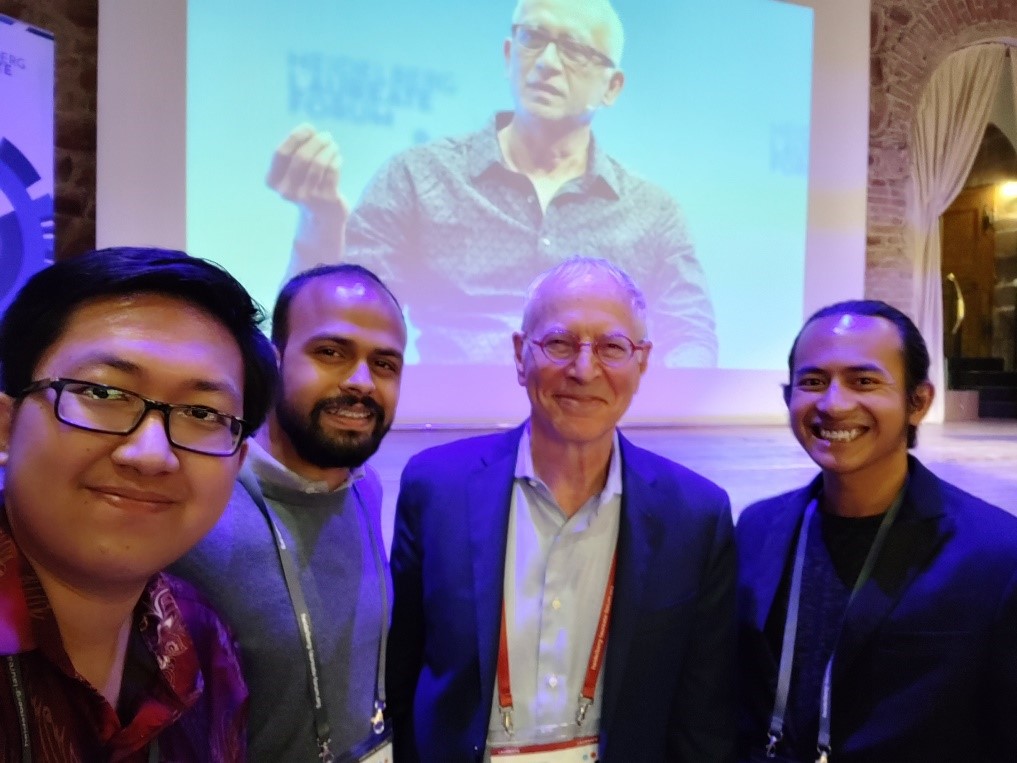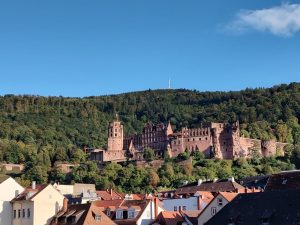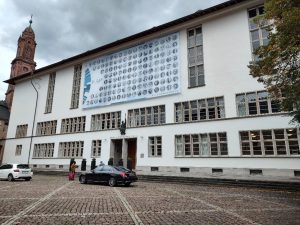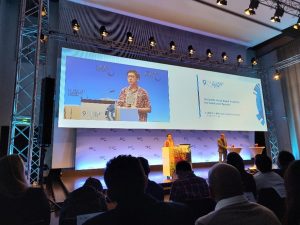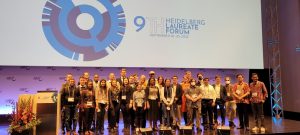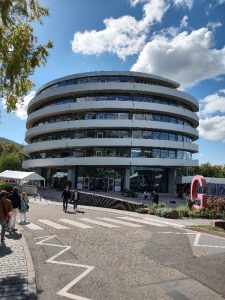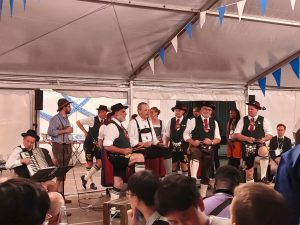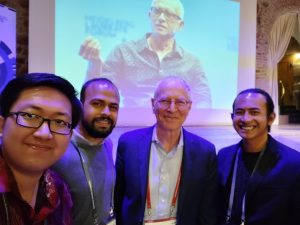Albert Christian Soewongsono
University of Tasmania
Where are you in your career?
I am a final-year PhD student in Mathematics from the University of Tasmania. I will start a postdoctoral position next year at Washington University in St. Louis to continue working on mathematical models for problems in evolutionary biology.
Why do you want to attend the HLF?
The HLF offers a unique experience in a way that it allows young researchers like myself to learn and interact directly with laureates in mathematics and computer science, and it also brightens my understanding on how mathematicians and computer scientists can learn from each other. Not only that, at the forum I can expand my networks by meeting with other young researchers and learning about their research areas. The forum also takes place at the historical city of Heidelberg, so it offers nice cultural and historical exposures.
Tell us about your research.
My research centres around the applications of stochastic modelling in species phylogenetics, which is a study of evolutionary relationships among groups of present-day species. In the process, we develop models that can be used to describe evolutionary processes that include changes in both speciation and extinction dynamics from given phylogenetic trees. These processes may depend on many factors such as tree age, species’ inherited traits, or even change in ecology and geography, which then be taken as a consideration in models that we develop.
If you could meet any Fields Medalist or Abel Prize winner, which would it be and why?
I would love to meet Sir Andrew John Wiles to learn how he keeps his passion and persistence when first stumbled upon Fermat’s Last Theorem at early age until he was able to solve the problem that got him awarded the Abel Prize.
9th Heidelberg Laureate Forum Report
The 9th Heidelberg Laureate Forum (HLF) was a networking event held in the city of Heidelberg in Germany from September 18 to September 23, 2022. The forum carefully selected 200 young researchers at various stages in their study and career in mathematics and computer science across the globe. There were also journalists and local participants attending the forum as well. My trip to the forum was supported by the AMSI-AustMS Heidelberg Laureate Forum Travel Fund (https://rhed.amsi.org.au/heidelberg-laureate-forum/) and mathematics discipline at the University of Tasmania. I arrived at the forum on September 18 (due to some issues with my flights) but I was able to be there on time for the opening ceremony. Prior to attending the forum, I was lucky to be able to attend the previous forum in 2021 which was held virtually and the virtual HLF held in 2020.
Heidelberg castle, as seen from the Old Bridge (Heidelberg) (Photo: Albert Christian Soewongsono)
The forum sessions were quite packed throughout the week as it consisted of many engaging talks by the laureates, panel discussions, hot topic discussion that prompted participants to raise their questions, networking events during coffee break or lunch and dinner, and so on. Each day, we had to complete a mandatory COVID-19 antigen test located at various sites near the University of Heidelberg, then we were given different coloured-stickers each day after the check before entering venues. At early morning, we had a yoga session if participants wanted to relax themselves. Then followed by either laureates talk or panel discussion. The talk and discussion topics throughout the forum covered quite different number of areas, from the future of Mathematics and Computer Science, lecture in deep learning to the importance of science communication to general public. The organisers were also very creative in terms of venues for these talks. For example, on Friday for the lecture by Shwetak Patel on Computing for Social Good, we had to take a bus from the New University building to SAP Audimax.
The New University building where most talks took place (Photo: Albert Christian Soewongsono)
Other than lectures and discussions by the attending laureates, we, as participants, also had our opportunities to talk about our research in both formal and casual setting. During the forum, we had the Poster Flash & Session being held on Monday afternoon and the Science Slam on the following day. I was fortunate to be selected as one of the 30 participants to represent their research to laureates and to other participants, then followed by having my poster presented during the poster session. Personally, it was a wonderful experience to present my work at the HLF and quite challenging as we were only given two minutes to highlight our research work. The Science Slam was also a unique experience, and it was set up during the dinner session at Speyer Museum of Technology where we had the opportunity to sit on the same table with the attending laureates while listening to our fellow participants talked about their research in a more casual but engaging way on the stage. Back to the New University building, there was also an exhibition held by I AM A.I. (https://www.i-am.ai/) nearby where we can come and play around and learn about neural network.
Presenting research work during the Poster Flash Session.
All the thirty poster presenters at the 9th HLF (Photo: HLF)
In my opinion, the forum struck a good balance between scientific interactions packed in engaging setting and cultural-related activities. Throughout the week, we were offered opportunities to participate in the guided city tour around Heidelberg, boat party along the Neckar river, and the Bavarian evening. You could also go around the city yourself if you finish lunch early. The forum also provided us with activities to progress in our career or study. For example, on Wednesday, young researchers can visit one of the research institutes on their list. I went to the European Molecular Biology Lab, and through the visit to there, I learned about various postdoctoral programs that they offer. I particularly enjoyed the session on Career Paths for Mathematicians and Computer Scientists since it is very useful for us in their early stages of career either in academia or industry. The session was designed so we can ask more specific questions on career to the panelist, which included experts in their field and alumni of the past HLF.
Institutional visit to the European Molecular Biology Lab (Photo: Albert Christian Soewongsono)
Dance performed during the Bavarian Evening at the 9th HLF (Photo: Albert Christian Soewongsono)
Our amazing week ended with dinner and tour at the Heidelberg castle. Although it only lasted for less than a week, the forum allows us to keep connected with each other by joining their alumni network, AlumNode (https://alumnode.org/) and through their 9th HLF phone app.
To end this article, based on my recent and past participations at the forum, I highly encourage young researchers, from undergraduate students to early-career researchers, in mathematics and computer science to attend the forum. It is one-of-a-kind experience that you do not want to miss if you are looking for a good mix of scientific interactions and cultural experiences.

